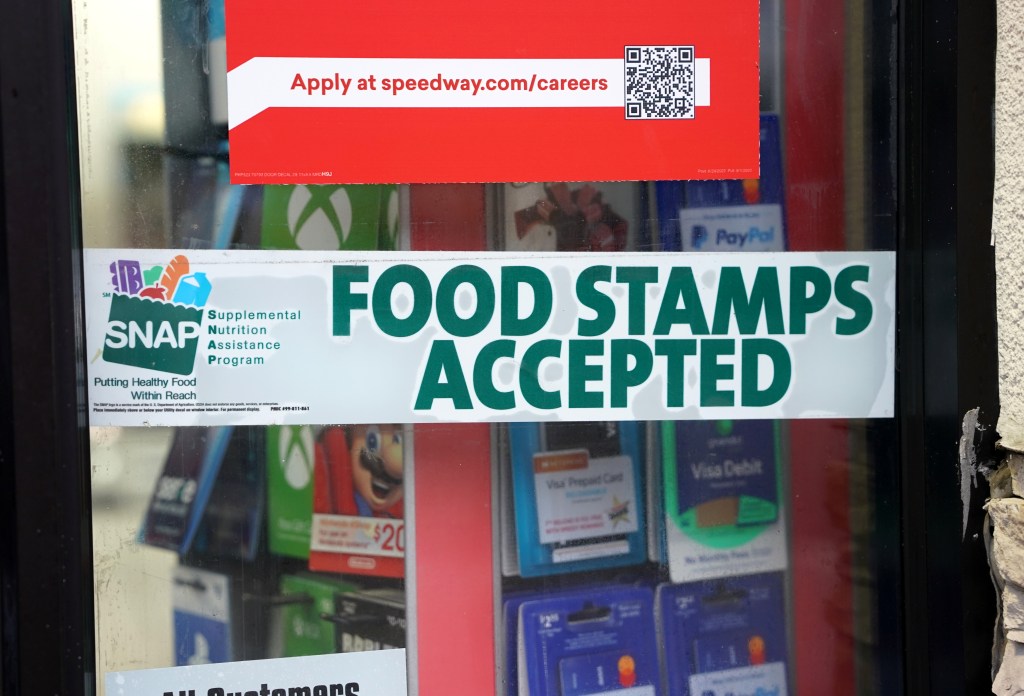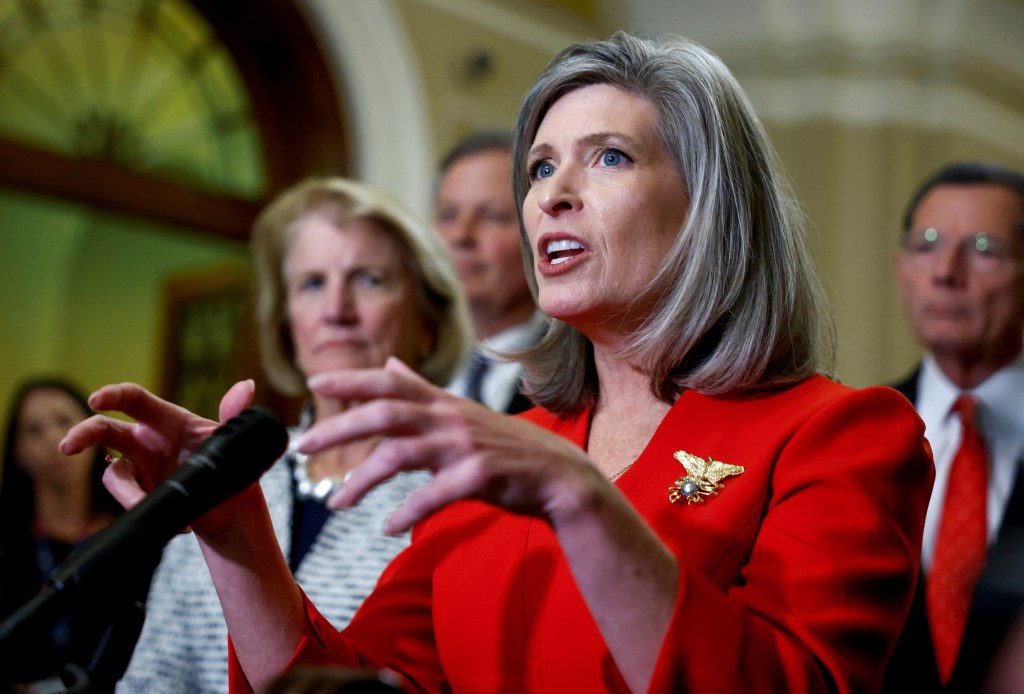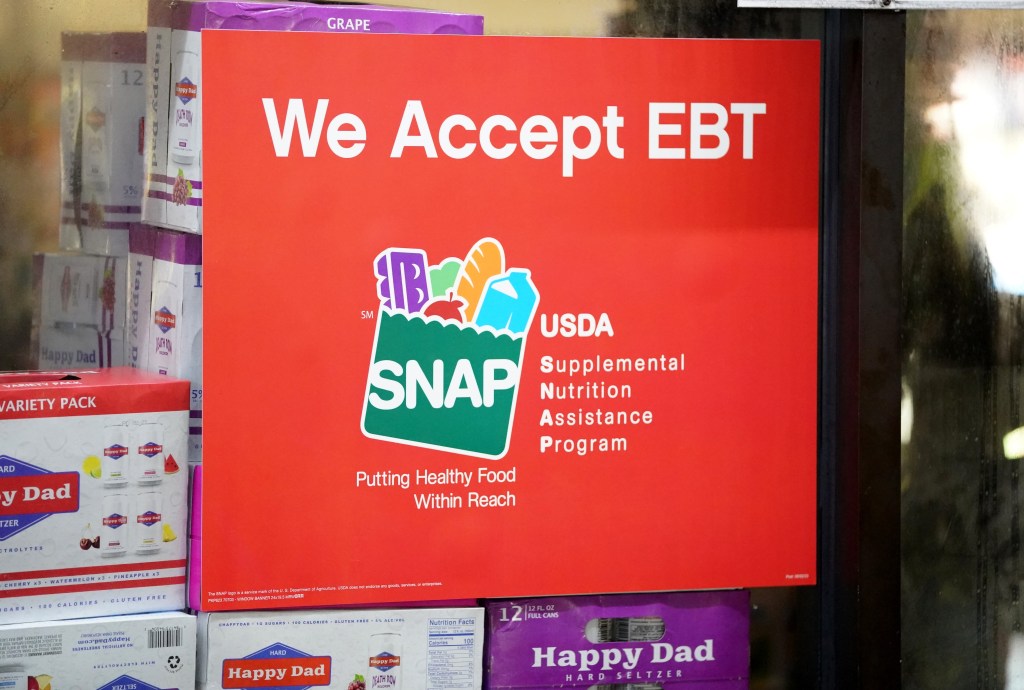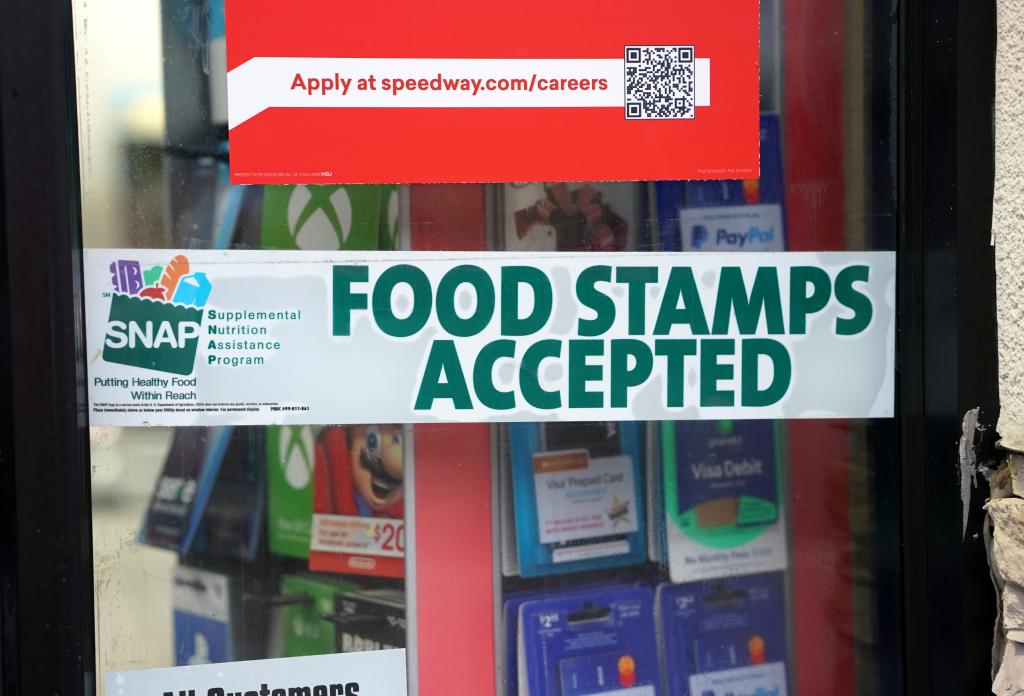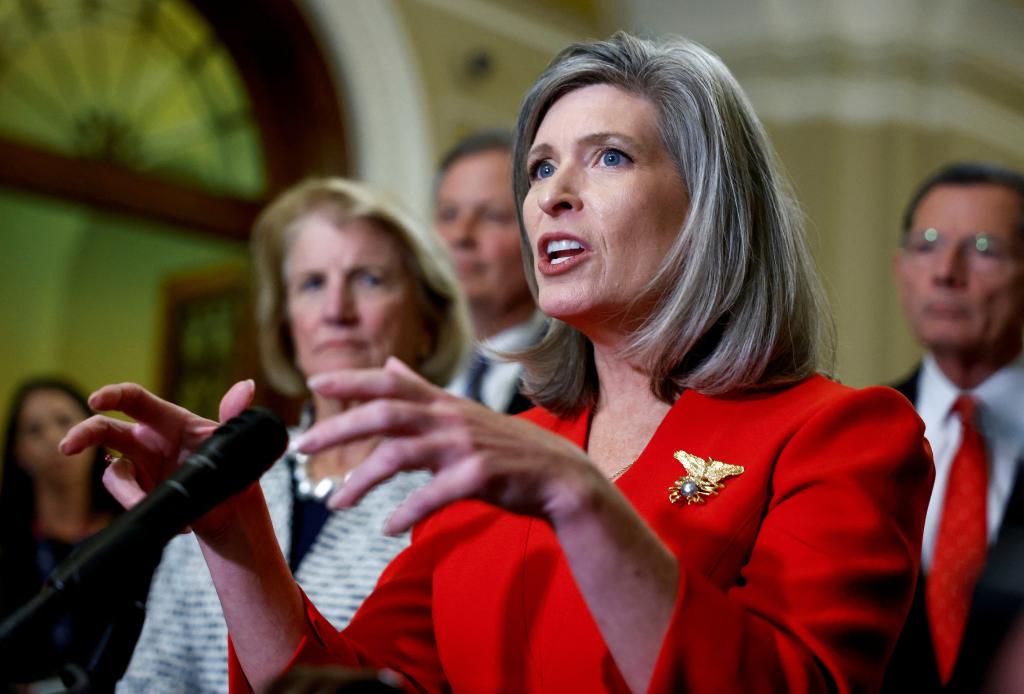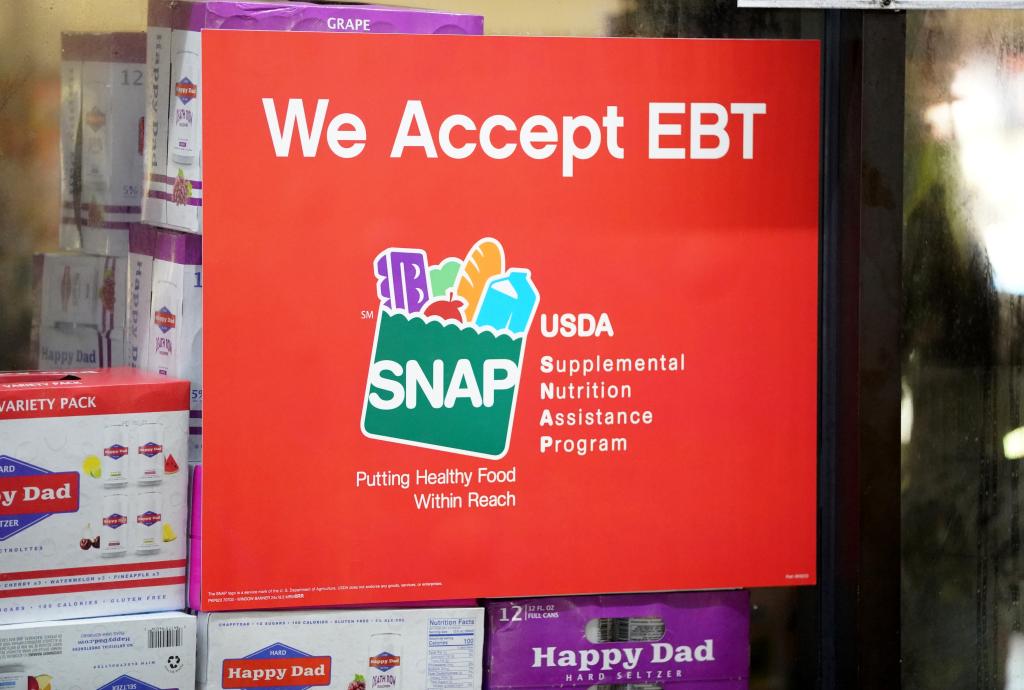States would be forced to recover staggering $11B in food stamp overpayments under proposed law
A proposed law would force states to recover billions of dollars from waste and fraud in the federal food stamps program that were ignored during the COVID-19 pandemic.
A staggering $11 billion in overpayments were delivered to recipients in the Supplemental Nutrition Assistance Program (SNAP), also known as the food stamps program, according to 2022 federal data — up from $3.4 billion in 2019.
Nearly 80% of improper payments were the result of errors made by the state agency.
But the US Department of Agriculture and states that administer food stamp aid to recipients all but abandoned clawing back the funds since 2019 — before the COVID-19 pandemic, said Sen. Joni Ernst (R-Iowa).
The feds exempted states from even reporting data on overpayments and error rates in 2020 and 2021 during the outbreak.
The overpayment rate skyrocketed nationally from 6.18% in 2018 to 9.84% in fiscal year 2022.
In New York, the overpayment rate was even higher — surging from 5.9% in 2019 to 10.35% in 2022.
Ernst said the true cost is unknown because overpayment errors totaling $54 or less per recipient are exempt from collection.
The senator’s bill would require states to recover all the overpayments to recipients and pay the federal government what it owes.
The bill also requires that all SNAP payment errors be reported, regardless of the amount.
Ernst even suggested states may be pocketing some of the funds.
“Families across the country are going hungry while bureaucrats are jumping the line to gobble up SNAP dollars, either as a meal ticket to beef up state budgets or a self-serve buffet of benefits for themselves or others who do not qualify,” Ernst told The Post.
“I’m snapping back! It’s time for states at fault to pay the piper and eat the costs of their taxpayer waste. Instead of over-serving bureaucrats, let’s end the waste and set a place at the table for hungry families.”
Food stamp spending and enrollment exploded amid the pandemic.
In 2022, there were more than 41 million Americans on food stamps, compared to about 35 million people in 2019.
During the same four-year period, spending on food stamps grew to a record-high $119.5 billion, up from $60 billion in 2019.
Food stamp spending nearly doubled, despite only 6 million additional enrollees, an analysis by the Foundation for Government Accountability said.
Monthly food stamp benefits in New York are a maximum of $740 for a family of three, $939 for a family of four, $1,116 for a family of five and $1,339 for a family of six.
“Food stamp fraud costs taxpayers millions and diverts resources from the truly needy. Congress should pass basic program integrity measures to prevent fraud before it happens,” the FGA said.
New York has had its share of people ripping off the food stamp program, including government workers.
An employee of the city’s Human Resources Administration was nabbed in 2017 for using inside knowledge to create fake accounts and stole more than $225,000 in food stamps and other benefits over seven years, the state inspector general reported.
Two city HRA workers were also busted in 2015 after exploiting flaws in the city’s welfare system to swipe $2.1 million worth of food stamps and rental subsidies — and then spent $120,000 on Red Bull, authorities at the time said.
The Department of Agriculture declined to comment on Ernst’s SNAP accountability bill.
But in a June statement, it acknowledged that states were not required to issue overpayments or error rates in the food stamp program in 2020 and 2021 during the pandemic.
“USDA is committed to supporting states in improving payment accuracy in SNAP to ensure the program effectively and efficiently serves those who need it and promotes good stewardship of taxpayer dollars,” the agency said.
“We are doubling down to work with state partners to find ways to decrease payment errors and tackle the issues aggressively at their root cause. Together, we will continue to move toward a stronger, efficient, more modern future for SNAP and those it serves.”
New York Gov. Kathy Hochul’s office had no immediate comment.
